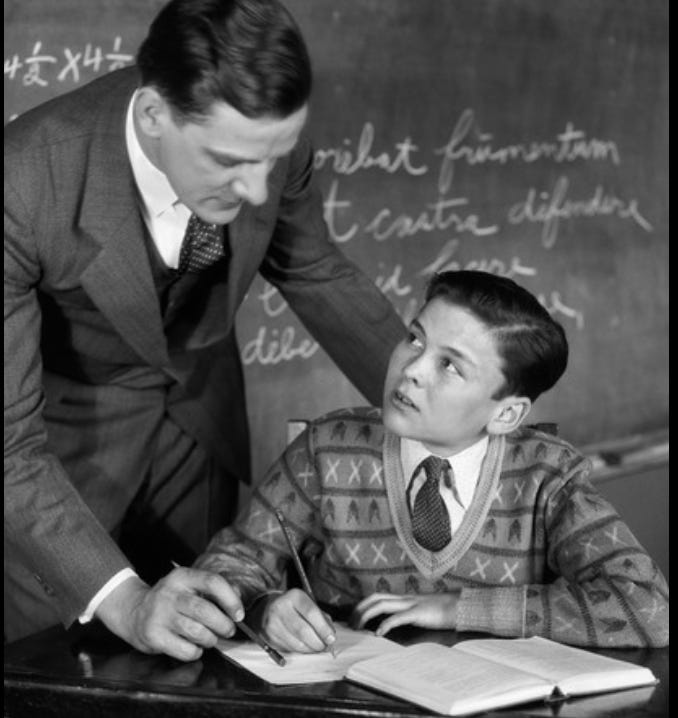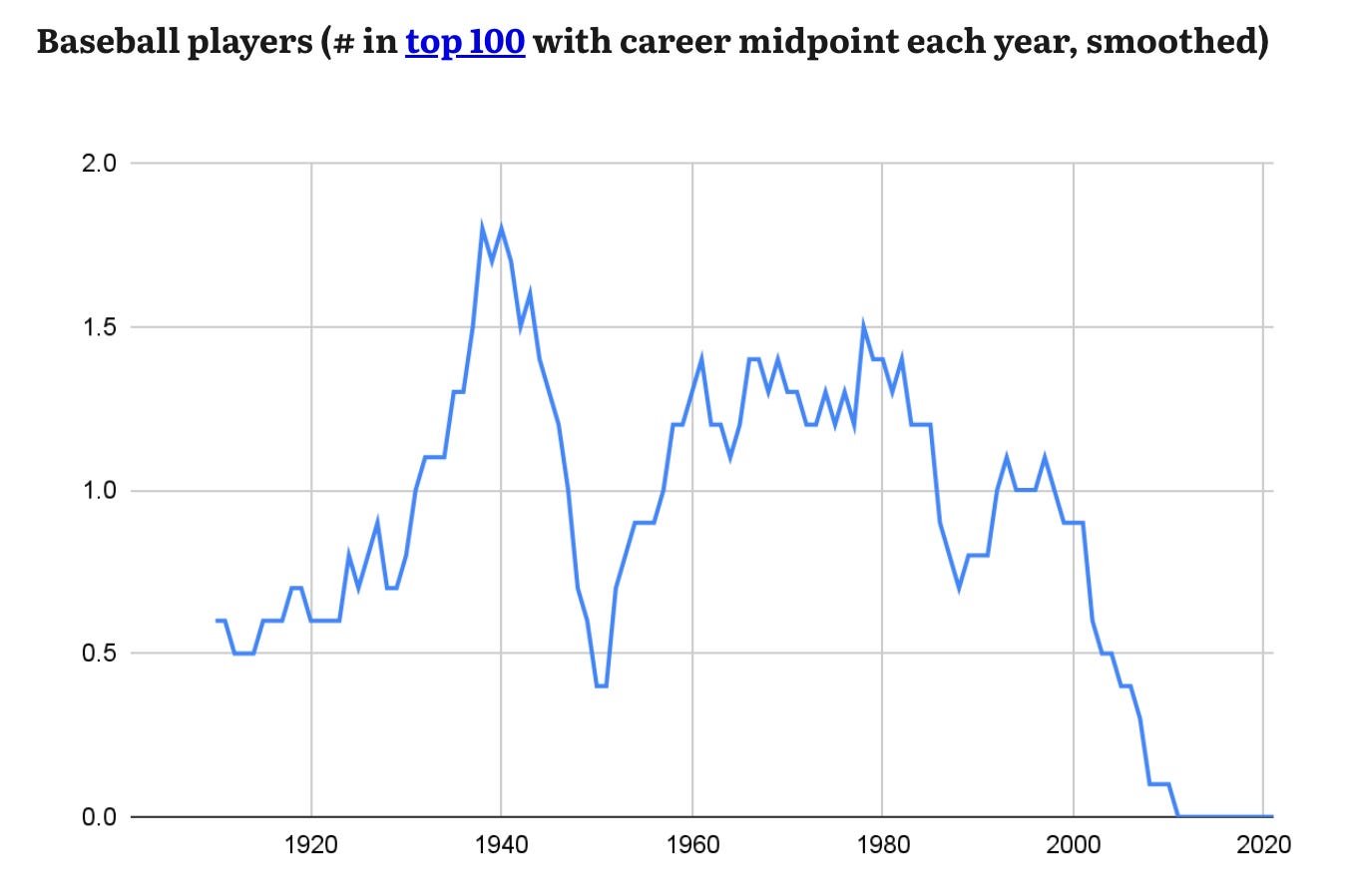For most of human history, the only form of education was elites hiring 1-on-1 mentors for their kids.
While most people worked the land, those with money gave private lessons to their kids, some of whom became names we still recognize today. In the essay “Why we stopped making Einsteins,” Erik Hoel explains that we used to have an artisanal approach to fostering great thinkers. Lots of unique mentorship styles and relationships and plenty of free time to read, play, and think. We covered that approach to education in more detail here. Of course, we couldn’t give a personalized education to the entire population when most people had to work the land for food.
With the advent of the industrial revolution, we also industrialized (and militarized) education. For the sake of standardized measures, we put kids in neat rows and made them all memorize the powerhouse of the cell and when Colombus sailed the ocean blue. Suddenly, most people – even working people – had access to education. You would expect to see a simultaneous rise in the instance of genius.
That’s not what happened. We’ve actually seen a decline in genius innovation.
Here’s the strange part… not only have “great artists/scientists/philosophers per person” dipped significantly, but so have great works of fiction and even, more recently… great baseball players.
The problem is clear: in the (alleged) quest to educate more widely, we educated everyone poorly.
We know students learn best from the 1-on-1 attention of a good teacher. When given the opportunity, adults readily mentor kids who show an interest and aptitude. We’ve inhabited the instinct to “take someone under your wing” in the name of standardization and fairness.
To give the devil his due, when most people were farmers, it was impossible to mentor every child. Some kids were just unlucky or were born in the wrong place. Even for most of the century, we’ve had industrial schools, and pulling kids out for a personalized education has been too expensive for most people.
But we are entering a new landscape. Once again, the earth is about to shift under our feet. For one, across the board, the cost of traditional education is on a wild ride upward. Check out the blue line below:
Meanwhile, powerful and cheap educational technology and more parents doing knowledge work (as opposed to working the land) means 1-on-1 education with mentors (be it with parents, at micro-schools, alternative programs, or online) has never been more possible.
Yes, often, the rising cost of education is forced on parents forced on families through property taxes. But that tide is slowly shifting toward more educational choice.
At some point, even the most luxurious option: hiring personal mentors for your kid (which is totally unnecessary), will be cheaper than sending them to traditional schools (as paying for them through taxes hopefully becomes more optional). When that happens, the already-rising flood of alternative school options will arrive – driving the cost of personal mentorship even lower.
Clearly, there are better, cheaper ways to educate kids already. But, as it often goes, the new way of doing things must be, it seems, at least 10x better than the old way before people shift voluntarily.
And that threshold of “10x better” is quickly approaching.
For people who have never considered homeschooling, this seismic shift could be a wake-up call. There has never been a better moment, with more tools and access to mentors, to help kids reach for their particular genius.
And that’s without mentioning the collective wealth we all inherit from cultivating more geniuses.
Parents, here’s what traditional school didn’t teach you: nobody knows what they’re doing. Education trends and teaching experts are wrong all the time, and classroom practices are hard to correct even once we realize they're wrong. What’s most important is showing kids that their curiosity is powerful and useful. Fostering a sense of wonder and growth is more important than learning the molar mass of iron. Yes, you can become a mentor for your kid. You can share whatever it is you know. You can augment yourself with online courses, technologies, and books. Your attention to their learning alone will likely change their lives more than an Ivy League education. After all, we’ve had more and more kids getting Ivy League educations and a drop in the instance of genius during that same period.
If you allow kids the space to find mentors online who inspire them, they can reach out to them. Maybe a few will take your child under their wing. We know a few kids doing this – and with inspiring success.
After a long educational experiment, we’ve nearly come full circle – again, we find ourselves in small communities, but now on the internet. This time, it’s not just the elites with access to incredible mentors. It’s anyone with curiosity and courage.
This shift could be the most powerful since the creation of the industrial school system.
This time, we'll do it in a way that empowers kids and unlocks latent genius -- instead of the opposite.
Thanks for reading,
Taylor + rebelEducator team
P.S.
What we’ve been looking at:


What we’ve published this week:










The histogram of geniuses starts to decline around the time of the guttenberg printing press. The printing press aloud more people to have books and education. Seems like that caused a drop in geniuses. Could it be that before mass literacy the bar was lower ? It is it that the format changed into industrial schooling and that’s what simultaneously mediocratized and democratized knowledge
Both of my parents were K-12 educators and I've been teaching for more than 30 years at the community and university level. I agree with you completely that our education system has not only failed miserably at fostering that sense of wonder, but has squelched it in most kids. Increasingly more money is spent on education and increasingly less of it makes it to the learning. I'm rooting for alternative options for education. Thank you for sharing this.